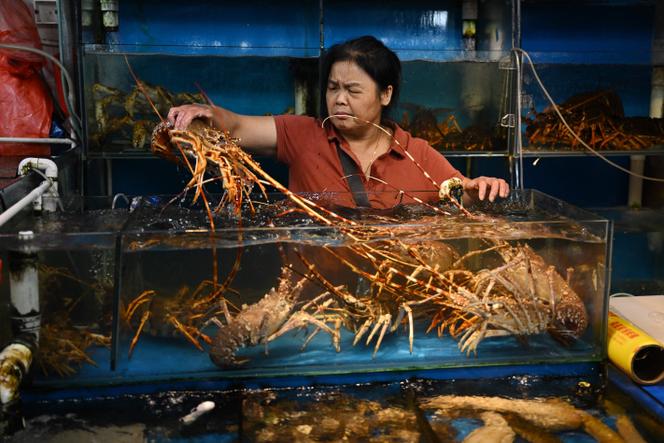


In China, there is widespread anger at the release of contaminated water from the Fukushima power plant into the ocean by its operator Tepco, which began on Thursday, August 24. On the social media platform Weibo, the topic was viewed more than 1.8 billion times on Friday, prompting violent comments against the "Japanese devils." For weeks now, China's state-run media have been publicizing the subject, issuing a multitude of videos, articles and press cartoons accusing Japan of polluting the ocean.
Behind the anger against Japan, China's historic enemy, there is real concern. In the coastal provinces of Jiangsu, Guangdong and Fujian, customers have rushed to supermarkets to stock up on salt, fearing that it may be contaminated in the future, a phenomenon also seen in South Korea. On Thursday, the Chinese authorities banned the import of all Japanese seafood.
The ban follows a months-long campaign by China to prevent Japan from discharging water containing traces of the radioactive element tritium. Japan issued assurances that the contaminated water had been sufficiently treated and diluted to achieve a tritium level below the standards required for drinking water by the World Health Organization. These assurances were confirmed by the International Atomic Energy Agency (IAEA).
But China has accused Japan of "selfishness" and called on its Asian neighbor to keep the contaminated water on its land. "The oceans are the common property of all mankind, and discharging water contaminated by [the power plant at ] Fukushima into the oceans is an extremely selfish and irresponsible act that disregards the international public interest," said the Chinese foreign ministry in a statement.
Across the country, inspections were launched in Japanese restaurants and supermarkets to verify compliance with a ban on 10 Japanese seafood products decreed on July 7. In Shanghai, state media reported on the inspections, which included not only seafood but also Japanese soft drinks.
The Chinese atomic energy authority has criticized the IAEA's assessment approving the release of contaminated water, calling it "an advisory assessment, which does not have the force of international law and cannot confer any legitimacy or legality on Japan's plan to release nuclear-contaminated water." For the Chinese authority, the IAEA's work "is strictly limited by the Japanese side and does not include possible disposal options other than ocean dumping."
You have 27.7% of this article left to read. The rest is for subscribers only.
